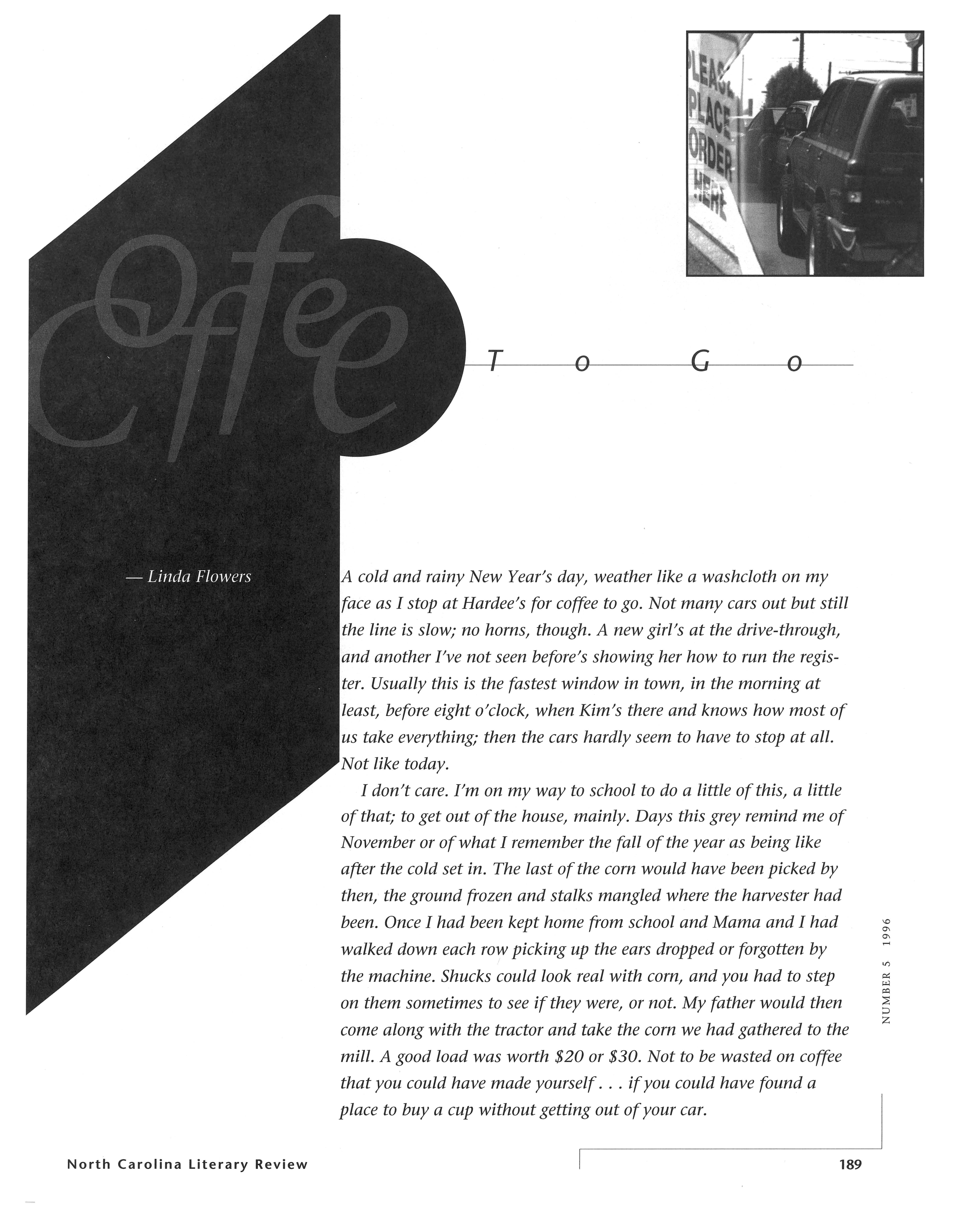Friday from the Archives: “Coffee to Go” memoir by Linda Flowers from NCLR 5 (1996)
“But now, young and old alike work at jobs having no particular value to themselves beyond their pay. My parents and I could see in every aspect of our lives the meaning of our work. If we wanted (or had to have) anything in particular, we had to do something in particular to get it: sell a hog if we had one, scrape up another load of corn, work a day or two for somebody else. Precarious as our livelihood assuredly was, our work was never alien to us; labor and life were inextricably bound together.”
Linda Flowers, Professor of English at NC Wesleyan College, wrote several pieces for the early issues of NCLR. In “Coffee to Go,” she ruminated on the changing work available in eastern NC: from the tenant farmers of her own youth to low-paid factory or fast food work to the small middle class.
Class remains an integral and much maligned topic of writing today. Exploring what and how class affects people is what Flowers meant by, “My parents were proud people, but for sure they never thought of themselves as being – or as not being – somebody; not, at least, as the world commonly uses the term. Theirs was a generation that understood the admonition to “act like you are somebody” primarily as a moral injunction. Mama meant that I should act right, I should behave, when she conjured up this “somebody, ” this paragon of good manners. It was my father who would sometimes joke, “whether you are or whether you ain’t,” by which he meant nothing moral at all.”
It would be interesting to know how Flowers may look at eastern NC (or the country) today, 24 years after her passing. In a prescient passage, she wrote, “the working people we encounter every day in the jobs without which our life would need to be reshaped, doubtless have their own way of describing who they are
and where they’re headed. As for the rest of us, we must no more “get above our raisin”‘ than ignore the fact that progress for some is never the same as progress for all, and that unless and until we ask more of Hardee’s than coffee to go, nobody’s going very far.”
Read the entire essay on Gale Cengage or purchase a copy of the 1996 issue.
